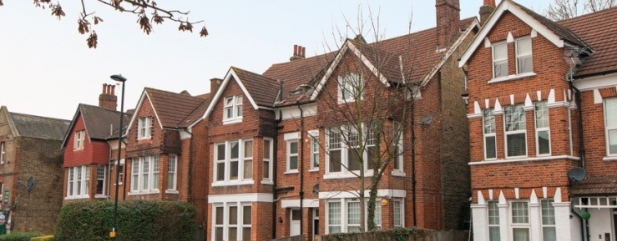Archived article
Please note that tax, investment, pension and ISA rules can change and the information and any views contained in this article may now be inaccurate.
Healthcare property investor Civitas punished for housing association troubles

Sitting in a relatively unknown niche within the real estate investment trust (REIT) sector is Civitas Housing (CSH) which provides secure housing on long-term 25-year leases to tenants who fall under the Government’s supported living criteria.
An integral part of the UK healthcare sector is facilitating care for individuals with significant long-term care needs. It enables people to live fulfilling lives in the community and close to their families rather than reside in a hospital or institution.
In addition to solving a valuable social need Civitas also saves the Government money by providing cheaper accommodation than residential care home or in-patient facilities.
In June 2019 social advisory firm The Good Economy published a report which examined the impact of the trust’s investments. It found that in monetary terms the portfolio had produced £114m of social value per year. That equates to £3.50 of value being created for every £1 of annual investment.
Civitas Housing is the first and largest of only three quoted funds operating in the supported living sector. Priced at 84.5p, it has a 6.2% dividend yield and is trading at a 20.7% discount to net asset value (NAV). The other funds in the space include Triple Point Social Housing REIT (SOHO) which trades on a much narrower discount to NAV of 10.7%.
It should be noted that the sector is still in its infancy and therefore unproven, with significant regulatory risk attached. Therefore Civitas’ high yield and wide discount to asset value could reflect some of the extra risks that investors face.
WHAT IS SUPPORTED LIVING?
Supported housing properties are homes for people requiring some form of specialist care, such as those with learning disabilities, autism, mental health issues as well as physical disabilities.
It means that homes need to be adapted to the specific needs of tenants, and include specialist requirements such as 24-hour staffing, CCTV, enhanced fire and safety equipment and office facilities for staff.
Across the UK there are more than 170,000 people housed in supported living facilities and the numbers are increasing at a rate of 5% a year due to ongoing demographic shifts as well as Government policy designed to offer supported living to more people.
A 2018 report published by Mencap estimated that between 29,000 and 37,000 supported living homes would be required by 2027/28, meaning there is a substantial unmet demand for suitable properties to fill the gap.
Richard Williams of QuotedData says: ‘The fundamentals are all there for the supported living sector, with demand for homes from some of the most vulnerable people in the country far outstripping supply of appropriate accommodation.’
INCOME-PRODUCING ASSETS
Civitas is advised by a 16-strong team with a long experience working in specialist healthcare and collectively they have been involved in the acquisition and sale of more than 80,000 social homes.
The team have assembled a portfolio worth £761m since inception by acquiring properties from housing associations, care providers, developers and private owners. The investment trust only purchases finished properties which already have lease agreements in place and are therefore income-producing straightaway.
The team only invest in homes where the counterparty is either a housing association or local authority. The minimum lease term allowed on purchase is 10 years and the majority is leased for 25 years.
The investment trust is already diversified and has exposure to 10 regions across England, the largest being in London which represents around 14% of the total rent. It is mandated to have a maximum exposure of 20% to any region and 25% to a local authority or housing association.
GROWTH POTENTIAL
Civitas recently secured a new £60m debt facility and is in advanced negotiations to secure a separate £70m loan, both of which will be used to fund already-identified acquisitions. It aims to further diversify by geography with plans to enter Scotland and Northern Ireland.
The investment trust wants to enter new Government-backed social housing programmes aimed at addressing homelessness and so-called NHS ‘stepping down’ accommodation. These involve adults discharged from hospital with no medical need to stay in hospital but who can’t immediately return home without support.
Similar to the current portfolio of properties the focus will be on helping individuals with learning difficulties and mental health issues while providing cost savings for the local authorities.
According to estimates from research group QuotedData once fully invested the extra investment will increase Civitas’ earnings per share from 3.63p to 5.57p.
REASONS FOR THE VALUATION DISCOUNT
The registered providers of supported living have only been established in the past 10 years and have moderate capital and in some cases less sophisticated corporate governance structures.
The regulator has issued judgements and notices on five housing associations that feature in Civitas’ portfolio, although the notices have not related to any financial matters or any of the properties owned by the investment trust.
However the news seems to have scared investors away and driven the shares to a significant discount. It should also be noted that in 2018 the investment trust did see one of its housing associations come under financial stress which led to the reassignment of 45 leases to other providers.
The financial impact was only 0.05% of the NAV which is not a material hit, but it wasn’t a welcome development for shareholders and a reminder of the risks.
Important information:
These articles are provided by Shares magazine which is published by AJ Bell Media, a part of AJ Bell. Shares is not written by AJ Bell.
Shares is provided for your general information and use and is not a personal recommendation to invest. It is not intended to be relied upon by you in making or not making any investment decisions. The investments referred to in these articles will not be suitable for all investors. If in doubt please seek appropriate independent financial advice.
Investors acting on the information in these articles do so at their own risk and AJ Bell Media and its staff do not accept liability for losses suffered by investors as a result of their investment decisions.
Issue contents
Big News
- Woodford Equity Income wind-up shakes fund industry to its core
- Could debt concerns at rival help Domino's Pizza?
- Shareholder dissent remains muted
- First glimpse at how stocks could react to positive Brexit deal
- TUI and Jet2-owner Dart capitalise on Thomas Cook ‘game-changer’
- UK dividend growth under threat

 magazine
magazine










